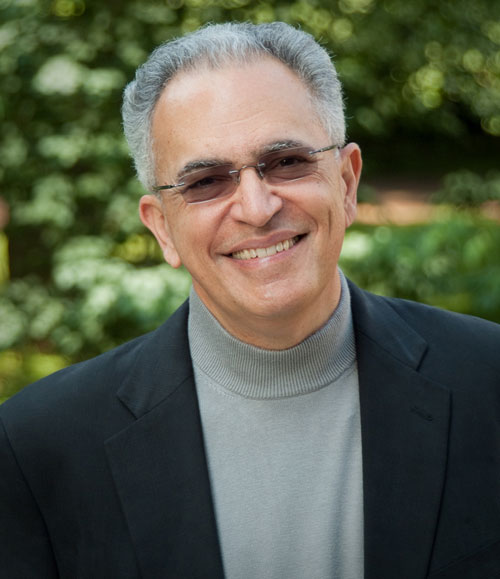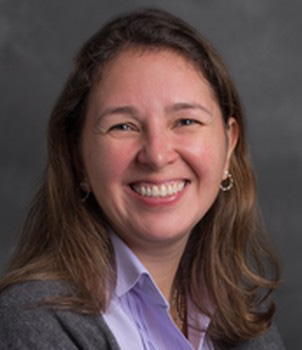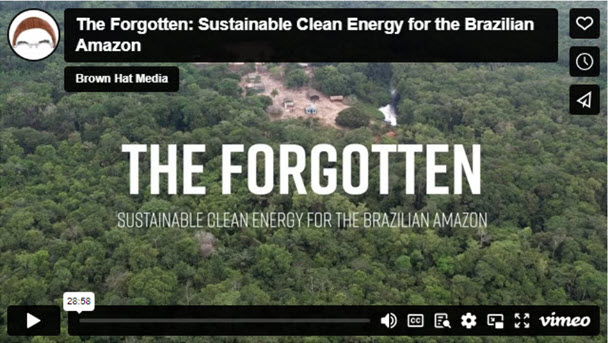Moran to continue energy convergence work in the Brazilian Amazon through new C.S. Mott Foundation grant
October 7, 2024 - Diane Huhn
 With additional funding from a recent $200,000 grant from the Charles Stewart Mott Foundation, Michigan State University John A. Hannah Distinguished Professor Emilio Moran and team, including Co-Principal Investigator Maria Claudia Lopez with the MSU Department of Community Sustainability will continue working with Brazilian partners on innovative and transformative methods to deliver electricity to off-grid Amazonian communities, where energy is often too expensive or unreliable. It is estimated that about one million people in the Brazilian Amazon lack access to the national electrical grid and are thereby limited in fundamental ways by this. They face limitations in access to education, nutrition, economic aspirations, and health. This project offers a best practices approach to future energy delivery.
With additional funding from a recent $200,000 grant from the Charles Stewart Mott Foundation, Michigan State University John A. Hannah Distinguished Professor Emilio Moran and team, including Co-Principal Investigator Maria Claudia Lopez with the MSU Department of Community Sustainability will continue working with Brazilian partners on innovative and transformative methods to deliver electricity to off-grid Amazonian communities, where energy is often too expensive or unreliable. It is estimated that about one million people in the Brazilian Amazon lack access to the national electrical grid and are thereby limited in fundamental ways by this. They face limitations in access to education, nutrition, economic aspirations, and health. This project offers a best practices approach to future energy delivery.
The team’s approach to a solution has been to provide renewable energy through photovoltaics to small communities in a manner that the system can be locally run and maintained. To be effective, Moran and Lopez have found that the system has to be reliable, and considerable effort throughout the work has been spent on training members of these communities to install, maintain, and govern their own energy system.
“We have laid the foundations for a solution through previous work funded under the U.S. National Science Foundation in which an interdisciplinary team of engineers, hydrologists, climatologists, and social scientists worked to understand these Amazonian communities and their needs and to develop a robust hybrid energy system solution, combining in-stream turbines and photovoltaics,” said Moran, a social scientist with the MSU Department of Geography, Environment, and Spatial Sciences, the Center for Global Change and Earth Observations, and the Center for Latin American and Caribbean Studies.

With combined support from the C.S. Mott Foundation and an NSF Convergence grant, Moran and his team continued to implement these solutions under the Energy Convergence for Off-Grid Amazonian Communities program beginning in 2022. During the early phases of the project, the team delivered training and the skills to install and maintain energy systems in communities in the Tapajos-Arapiuns Basin of the Brazilian Amazon. The project was very successful and earned a 2024 Distinguished Partnership in International Community Engagement award from Michigan State University last spring.
Based on these successes, Lopez says, “The program is being expanded to cover more communities, train more community members, and engage in a growing dialogue with the energy sector to ensure that they become familiar with what has been accomplished. The approach we have developed of participatory community engagement can become a widely adoptable solution to electrifying the millions of people left behind.” The team plans to offer four training courses and install six additional solar energy systems, including one fully hybrid microgrid and six solar-powered water pumping systems, during the new grant award.
To learn more about this ongoing work, please view “The Forgotten: Sustainable Clean Energy for the Brazilian Amazon,” a documentary that provides an overview of the work to date. The documentary has been selected to be shown at the 2024 ECOCINE International Environmental and Human Rights Film Festival, where it will be shown to a live theater audience.


